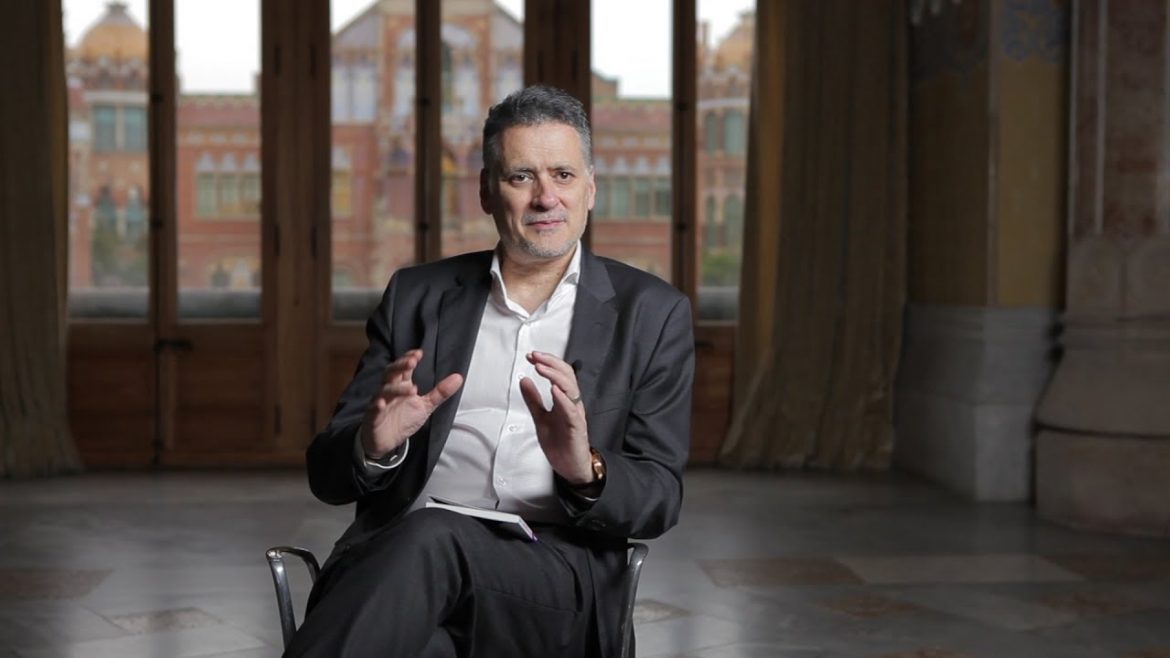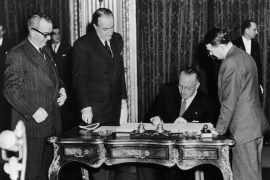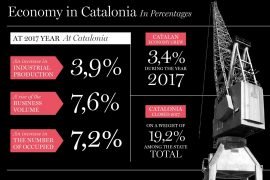Barcelona is a difficult and very observed patient that often goes through the consultation and constantly falls. But also it has a huge energy that makes him capable of overcoming the hardest blows.
Miquel Molina, deputy director of La Vanguardia and attentive analyst of the city, has undertaken the task of analyzing the situation in which we find ourselves and proposing ideas to give it a new impetus. The result has the form of a notice for navigators: “Alerta Barcelona. Adiós a la ciudad autocomplaciente” [Alerta Barcelona. Goodbye to the self-satisfied city ] (Libros de Vanguardia).
What is “Alerta Barcelona”?
It is an attempt to assess the situation of the city after a series of circumstances that have altered its usual pace. The political conflict, the attacks of last year, a very strong economic crisis … I went to look, a long time ago, a series of decisions that lead us to think that the city has a problem of ideas-strength to take it forward.
Is a city project missing?
Yes, a model is missing. The model that has lived this city since the Olympic Games has been eroding, a little for lack of interest by all. There has been a time when this city has worked so well that we thought it was not necessary to think about how to diversify, how to bet on new sectors … It has been a joint responsibility of all the political parties and of a society that has lowered its requirement level. To the point that in the debate that we have experienced lately with the independence process, Barcelona has stopped appearing as a political subject and has been too subordinate to the positions of one side and the other.
 What do you think are the main challenges of the city right now?
What do you think are the main challenges of the city right now?
This city has an urgent need to start up the machine to make good news. We have suffered significant damage to our reputation for different reasons (political unrest, degradation of coexistence, etc.) And that, in a city that is very observed, makes the effect amplify. So we have to try to sell the things we do well, which are many, and try to be less defensive and try to look for new opportunities. With the Brexit we are seeing that there are many cities, like Paris, that are moving a lot to capture everything that can be expelled from the United Kingdom. And another important aspect is determining which sectors to bet on. There are sectors, such as technology, music or books that deserve a firm bet.
In your book, you bet on culture as the main engine of the city model.
I think there can be no other model. Barcelona is nothing more than culture, if we understand culture in a broad sense, which can include the system of educational excellence (both public and private), the world of scientific research, etc … The bet, of course, is budgetary. But there is also a commitment of political determination, to take culture to the first level. And now we are not up to the task. You also have to take advantage of the culture to get a higher quality tourism.
What do you think will happen to the companies that have left?
I am pessimistic. I think it can have a negative or very negative effect for Barcelona, it depends on how we can compensate for it. It is very unlikely that companies will return with the current climate of political instability. Companies want reassurance and predictability. And what we have to do is compensate this march with the incorporation of new actors. It is difficult, because any company that wants to make investments in Barcelona considers why the local ones have left. But we are seeing that there are sectors, such as technology, where it seems that this has less relevance. Barcelona’s great risk is that the companies that have moved their tax offices finally end up leaving their company in the hands of delegates. And that Barcelona becomes a city of territorial delegates. When you need a sponsorship for an opera or you need an advertising investment in your media it is much easier to talk to the president of the company than with a delegate. The city runs a risk of being devalued.


















